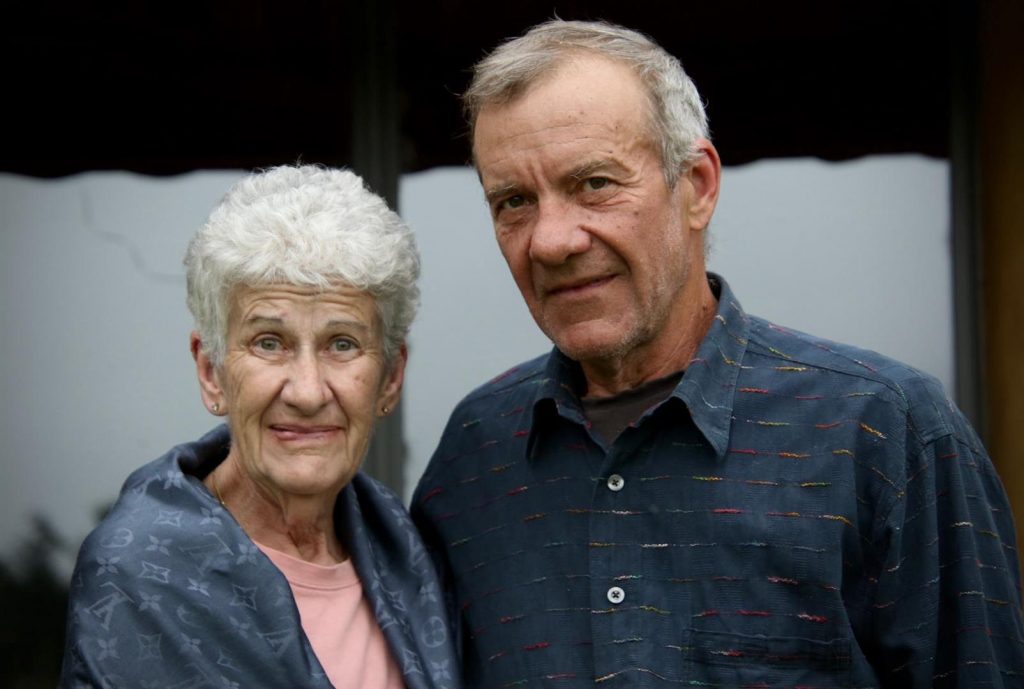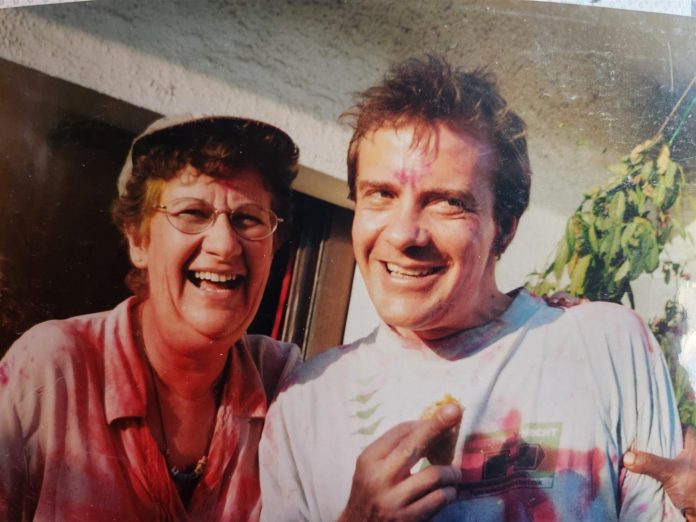Grieving the loss of his wife to Motor Neurone Disease, Markus Jufer is calling for more research on what causes the incurable illness.
Kehi Jufer died in June last year, aged 71, after being diagnosed with MND five years earlier.
‘‘She was always laughing,’’ said Markus of his wife of 32 years.
The couple enjoyed life together in Methven, where Kehi was originally from, and later in Alford Forest, where Markus continues to reside.
They travelled the world, and lived overseas for some time in France and India.
For the first six years of their marriage they would spend half the year in Switzerland, Markus’s home country, where Kehi also became a citizen.
MND is a rapidly progressing neurological disease that gradually incapacitates its victims and generally leads to death within five years.
While the first symptoms for many with MND are mobility issues with limbs, for Kehi it was slurred speech, which she and others began to notice straight away.
‘‘She sounded like she was drunk,’’ Markus recalled.
Weight loss followed as it became hard to eat and swallow, and ultimately the disease affected Kehi’s breathing and oxygen levels.
‘‘She could still walk but just didn’t have the energy to do it.’’
Markus supports a petition seeking MND to be classified as a notifiable disease, so the Ministry of Health can collect more data on the illness which kills about 120 New Zealanders each year.
New Zealand has one of the highest incidence rates of MND in the world. As just 10 per cent of cases are known to be inherited, environmental factors are believed to play a role.
Making the disease notifiable would lead to the prioritisation of funds for research which was desperately needed to determine these environmental factors, Jufer said.

The New Zealand petition was launched by Christchurch man Paul Barton, whose wife Ally was diagnosed at the age of 34 in 2021.
‘‘MND affects everyone in different ways. That’s the frustrating part because they (doctors) say ‘We don’t know why’. They should be investigating links,” Barton said.
When a New Zealander is diagnosed with MND there is an optional registry, but Barton believes recording details would be a low priority for a new sufferer.
“If you’ve just been told you’ve got two to five years to live, you’re so overwhelmed you’re not going to give a s**t about a register,” he said.
Barton suspected MND was not already notifiable because it is not infectious or a risk to public health, a view vindicated by Ministry of Health – Manatu ¯ Hauora deputy director of public health, Richard Jaine.
“Making a disease notifiable is aimed at assisting the surveillance, monitoring and response to a disease that presents a risk to public health. Mostly this includes infectious diseases,” Jaine said.
“As such, there are no plans to make Motor Neurone Disease a notifiable disease.”
However, the ministry’s current list of notifiable diseases includes lead absorption (poisoning) and decompression sickness, which covers injuries caused by a rapid decrease in air or water pressure.
The petition has drawn more than 1900 signatures since it was launched in November. Barton hopes for a greater response before it closes on May 31 and is lodged with Parliament.
Barton’s campaign has been backed by Motor Neurone New Zealand Charitable Trust.
“We very much support him and agree the MND Registry would be better utilised if it included all possible information from 100 per cent of those who suffer MND in New Zealand,” said interim chief executive Mark Leggett.

* Make Motor Neurone Disease a Notifiable Disease petition can be signed via the QR code at right, or at tinyurl.com/ 4pvfcnvh




